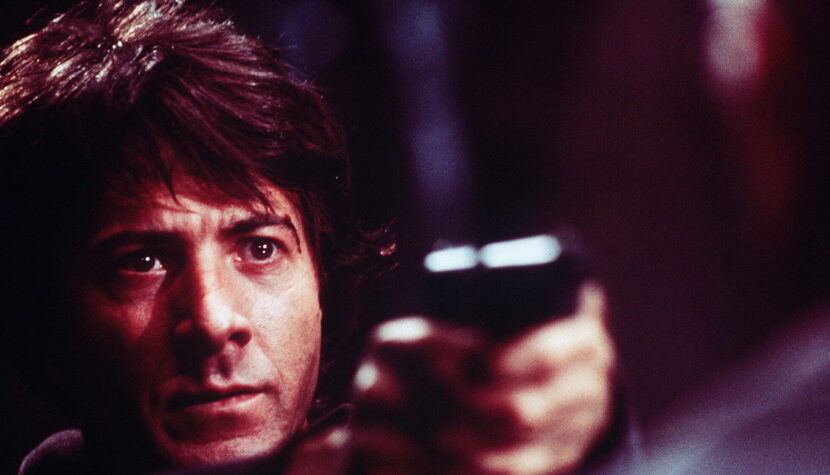MARATHON MAN. A thriller where the fantastic atmosphere of the 70s emanates from the screen

The seventies gave us, among other things, excellent thrillers. Right at the beginning of the decade, we had Popeye Doyle fighting drugs in the brilliant “The French Connection” by William Friedkin, and shortly after, “Dirty” Harry Callahan debuted in the first installment of the relentless law enforcer series. And that’s just the tip of the iceberg. The protagonists of such productions were typically police officers, though there was no ironclad rule here, as evidenced by “Marathon Man,” directed in 1976 by John Schlesinger, where the protagonist has nothing to do with law enforcement.
The screenplay, based on his own novel, was crafted by William Goldman, also known for thematically distant works like the wonderful “The Princess Bride,” which I wrote about some time ago. “Marathon Man” begins with a grotesque argument between two drivers, culminating in a car scuffle and the death of both due to an accident. It quickly turns out that one of them is the brother of a former Nazi, Christian Szell (Sir Laurence Olivier). This accidental death initiates a chain of events that pulls in the unwitting college student Thomas “Babe” Levy (played by the thirty-nine-year-old Dustin Hoffman) into a Holocaust-related affair.

First and foremost, the leisurely narration stands out. The director slowly but consistently builds tension, introducing various characters and weaving a web of intrigue. The film captures New York and Paris from the mid-seventies, with notable performances on screen by Hoffman and Olivier, alongside Roy Scheider (“Jaws”) and William Devane, who embodies the appearance of a quintessential American politician, a role he also played excellently in the series “24.”
The film remains engaging to this day, aging very gracefully, with the famous interrogation scene containing one of cinema’s most iconic lines (“Is it safe?”) still leaving the same impression as on its premiere day. The director embraces classic and enduring narrative motifs—the role of Chekhov’s gun, shown in the first act and fired in the third, is echoed in the protagonist’s passion for jogging. Babe is an ordinary man faced with extraordinary events, making mistakes, feeling fear, and seeming powerless against adversaries. But when pushed to the edge, he finds unexpected reserves of courage and cunning. Through a simple device—placing an everyman in an unusual and atypical situation, rather than a hardened drinker—the viewer almost instantly identifies with Babe. Meanwhile, Olivier excels in portraying the methodical and determined Nazi driven by the lust for profit.

The story behind the film has a happy ending. Laurence Olivier was very ill during filming and believed he would soon die. The medication he was taking affected his memory and significantly hindered his performance. Yet in the end, Olivier not only recovered but also received an Oscar nomination for his role. Another interesting tidbit is that the actor playing Szell’s brother—Ben Dova (whose real name was Joseph Späh)—survived the Hindenburg airship disaster in 1937 because he had special permission to access areas restricted to passengers (he was tending to his dog in the baggage hold), leading to intense questioning after the tragedy, with suspicions even directed towards him as the culprit before he was finally cleared of any wrongdoing.
Certainly, “Marathon Man” is worth giving a chance. While its pace is much slower than most contemporary productions, it remains a great example of gripping suspense. And let’s not forget the fantastic atmosphere of the seventies exuding from the screen.
Written by Piotr Zymelka

